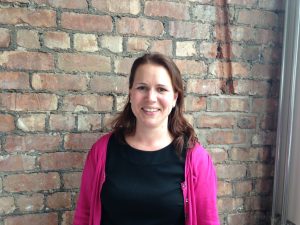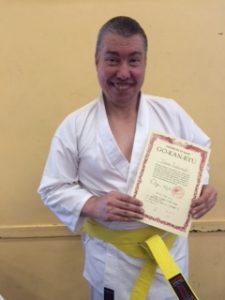 Far from the often dull safety of mainstream services, Shared Lives offers a radical approach to achieving a normal life. Anna McEwen explains how it allows people to overcome limited expectations and hears about some unexpected achievements
Far from the often dull safety of mainstream services, Shared Lives offers a radical approach to achieving a normal life. Anna McEwen explains how it allows people to overcome limited expectations and hears about some unexpected achievements
The barriers many disabled people face to having an ordinary life are varied and complex. They run from struggles to simply get up and dressed and needing support to get out of the house to the attitudes of others and finding and holding down a job.
Many factors and circumstances that constrain the ability to live well are deeply embedded in the culture and structures of our institutional forms of public services that seek to offer a risk-free but sterile life.
One way of offering an ordinary life in the community is through Shared Lives. Disabled people choose a carer approved by Shared Lives; the person regularly visits the carer or moves in with them long term as part of their household. While this offers a high degree of support, it can, for some, lead to greater independence.
Stories from family life
Here, two people with learning difficulties and physical impairments talk about living with their Shared Lives carers, what they expected and how life has turned out.
One recurring theme that arises from talking to James Rosborough and Nick Sayers and their carers Andy Cooke, Steve Morris and Tina Hayward is expectations – how they can hold us back, and how they can be addressed to live a healthy and happier life.
James Rosborough: family and friends
Rosborough is 47 years old and has epilepsy and a learning disability. He had lived in specialist residential centres for people with epilepsy all his life until he came to Shared Lives in 2010. He received excellent medical support, and help in managing his epilepsy was crucial to his physical wellbeing. However, there were aspects of his life that he had not been able to explore or develop.
He says: “I was very frustrated at not being able to do my own thing, not go out when I wanted. I didn’t have the independence or the freedom that I wanted.”
Rosborough had no experience of managing the daily tasks and chores of living in a family home, such as cooking, cleaning and going shopping. These were things he actively wanted to do and were part of his wish to live independently. However, he never expected he would have the opportunity for this.
“I never thought I’d be able to have my own house or do the things I wanted to,” he says. “Now I can get the help when I need it that I couldn’t get before. I can do more things for myself now and that makes me happy.”
Rosborough wanted to be more independent and live a life like most people but, having been in residential care for most of his adult life, he sadly lacked the experience of forming and maintaining relationships.
“Before Shared Lives, I didn’t have many friends, but now I do,” he says.
Rosborough met Cooke – a Shared Lives carer – in 2010. Supported by this relationship, he was able to experience and contribute to the many daily routines of life in a community.
His life expanded: his skills and experience grew to the extent that, in 2015, he realised his dream and moved into his own house. He and Cooke chose a house very close to where Cooke and his family live so he can receive support when he needs it and remain fully connected to them. He has a key to the family house and can spend as much time there as he wants; there is a room for him should he need it.
“I like having my own house but can always go to Andy’s house when I want to. I have so much more freedom now,” he says.
From walking to martial arts
Rosborough is more connected to his local community and has become more active.
“I have fewer seizures and my health has improved,” he says. “I’m more active, I get out more and get plenty of exercise. I go to town to the shops, my favourite cafe and the local pub. I like being outdoors. I like bird watching, photography and playing golf.”
 His increased physical activity has involved a lot more than walking. In emphatic defiance of the limiting expectations placed on him, Rosborough took up karate and is now working towards his orange belt.
His increased physical activity has involved a lot more than walking. In emphatic defiance of the limiting expectations placed on him, Rosborough took up karate and is now working towards his orange belt.
“James was told he’d never be able to do karate and actively discouraged from trying Ð having epilepsy and a learning disability was too big a hurdle to overcome,” says Cooke. “But the instructors wanted to involve him and James is really thriving in his karate class.”
A social company
Rosborough and Cooke have founded a community interest company (CIC) inspired by Rosborough’ experiences.
Since being supported by Cooke to integrate with his community and build relationships, he has grown in confidence and formed his own friendships. Through their company, Local Social, the pair are working to provide that same level of initial support so local people can meet each other and go to social gatherings.
Rosborough explains: “Andy says Local Social is about combating social isolation. I say it’s to help people make friends and get out more.”
Rosborough has, with Cooke’s support, transformed his life and utterly disproven beliefs about what somebody with his impairments could achieve. Perceptions of professionals and wider society about what people with disabilities can and cannot do are easily internalised by the individuals themselves.
Nick Sayers: counting success
 Sayers, who has a learning disability, has shared his life with Morris and Hayward for the past nine years. Before this, he had lived in foster care and went to a special needs school.
Sayers, who has a learning disability, has shared his life with Morris and Hayward for the past nine years. Before this, he had lived in foster care and went to a special needs school.
In Sayers’ words: “It was pretty awful to be honest – I was bullied. I didn’t make any friends and I couldn’t learn properly about the things I was interested in.”
Despite the barriers in his social and educational life, when Sayers changed school and started living with Hayward and Morris on weekends at first, he began to develop skills and interests.
Despite perceptions in some quarters about the academic ability of people with learning disabilities, Sayers has always had an affinity for maths – and a talent for it.
“I like to call myself a mathematician,” said Sayers. Since moving in with Hayward and Morris, he has helped to manage the daily household budget and, for several years now, has used his maths skills in a professional sense.
“I do voluntary work at Barnardo’s, and I am responsible for the banking at the shop I work in. I do a pretty good job I think – I won [a Barnardo’s] volunteer of the year award last year.”
Routine and unpredictable life
As well as growing into his role in the local community and at work, Sayers helps around the house and shares the responsibilities like any other family member would.
“I feed the cat, tidy up and I always make the beds – Tina and Steve hate that job, and they are rubbish at it.”
Sayers’ learning disability, coupled with the extremely regimented experiences of his foster care, meant he was used to daily life unfolding according to a strict plan and expectations.
Hayward says: “Nick likes things just so, and we like to encourage him to express his preferences and choices in terms of things like clothes. He was so used to being told what to do and how to do it, he had very little choice or preference but now he loves to pick his own outfits and buy them.
“The biggest change I’ve seen though, is in how Nick is able to manage challenges to his own expectations. Stuff like there being no milk left or a change in Nick’s bus route home due to road works used to be a cause of massive upset and worry.
“Now, through having lived with us and being gradually exposed to the unpredictable patterns of real life at work and at social gatherings, from a safe and secure base with us, Nick is able to navigate unexpected events.”
Part of an authentic good life is dealing with the unexpected – something Sayers has been able to do since sharing the experience with his Shared Lives carers.
A good life
“A good life comprises our ordinary family, community and work life,” says Alex Fox, chief executive of Shared Lives Plus, the UK network for Shared Lives and HomeShare (https://homeshareuk.org).
“Perceptions abound that some people’s needs, circumstances and backgrounds are just too complex for them to experience these.
“These expectations can underpin the culture of our institutions and are all too often imprinted on and internalised by people with disabilities, leading to a shrinking and suppression of their own expectations and hopes for their lives.
“At Shared Lives, we know giving people access to the routines of an ordinary family home can break the spell of those limiting expectations and give them the extraordinary experiences of living well: at home, in the community, and at work.”
For more information about Shared Lives, visit www.sharedlivesplus.org.uk or email info@sharedlivesplus.org.uk
Anna McEwen is executive director of support and development at Shared Lives
Gaining a family life: how it works
Shared Lives allows a young person or adult who needs extra support to live well, taking part in family and community life.
The person moves in with or regularly visits an approved Shared Lives carer, after they have been matched for compatibility.
Half of the 14,000 people taking part in Shared Lives are living with their carer as part of a supportive household; half visit their carer for day support or overnight breaks.
There are more than 10,000 Shared Lives carers in the UK, recruited, trained and approved by 153 local schemes, which are regulated by each home nation’s care inspectors.




